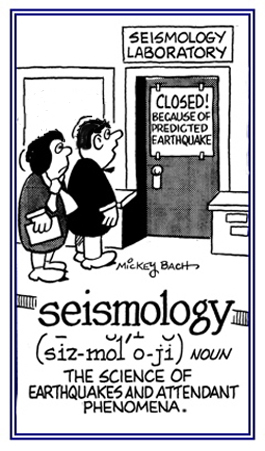-ology, -logy, -ologist, -logist
(Greek: a suffix meaning: to talk, to speak; a branch of knowledge; any science or academic field that ends in -ology which is a variant of -logy; a person who speaks in a certain manner; someone who deals with certain topics or subjects)
The word -ology is a back-formation from the names of certain disciplines. The -logy element basically means "the study of ____". Such words are formed from Greek or Latin roots with the terminal -logy derived from the Greek suffix -λογια (-logia), speaking, from λεγειν (legein), "to speak".
The suffix -ology is considered to be misleading sometimes as when the "o" is actually part of the word stem that receives the -logy ending; such as, bio + logy.
Through the years -ology and -logy have come to mean, "study of" or "science of" and either of these suffixes often utilize the form of -ologist, "one who (whatever the preceding element refers to)".
The examples shown in this unit represent just a small fraction of the many words that exist in various dictionaries.
2. Etymology: from Greek seismo-, "a shaking" + -ology, "study of" or "science of".

Go to this Word A Day Revisited Index
so you can see more of Mickey Bach's cartoons.
2. The study of the nature and history of the moon.
3. The study of the moon, including such attributes as magnitude, motion, and constitution.
2. In linguistics, the study of relationships between signs and symbols and what they represent.
2. The science of indicating thoughts by signs.
3. The theory of the use of signs; especially, words, in their relation to knowledge and cognition.
2. The branch of science concerned with serum, especially with specific immune or lytic serums; to measure either antigens or antibodies in sera.
3. The branch of medicine concerned with the study of blood serum and its constituents, especially its role in protecting the human body against disease.


